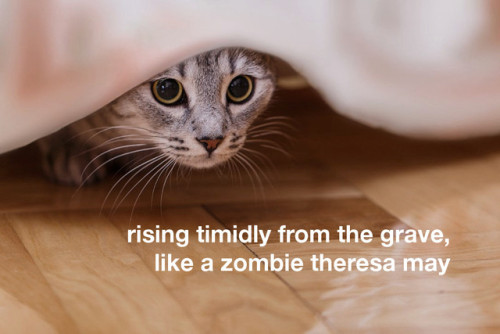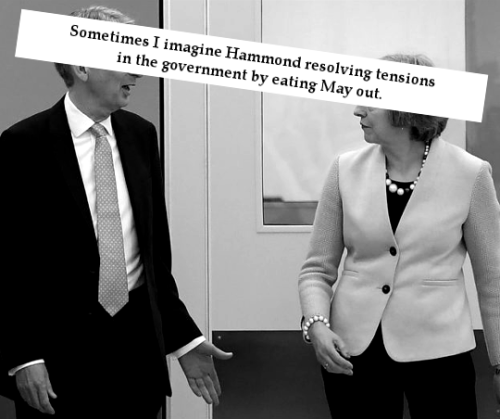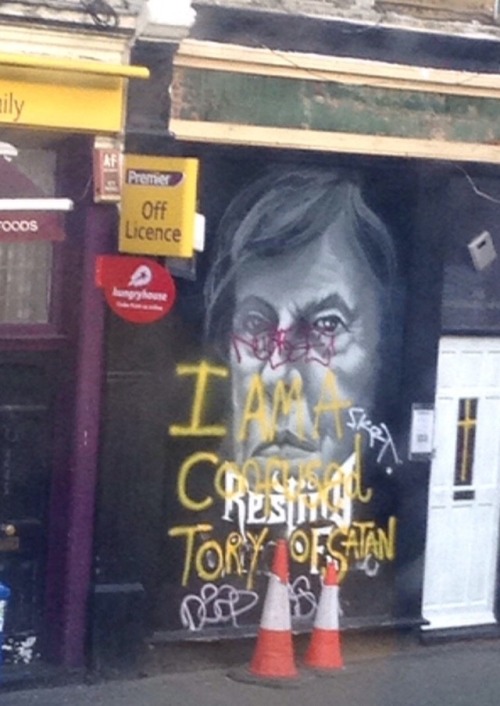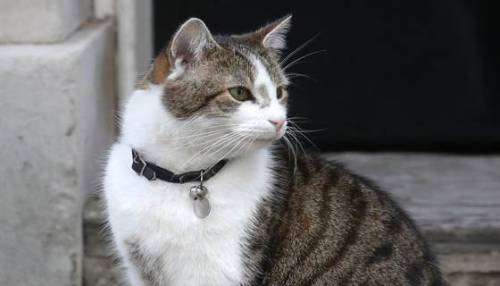#theresa may
There has never been a hypocrisy in modern British politics as tragic as the Tory response to the Grenfell Tower fire.
While Theresa May assessed the situation in private - no chance for her to be jeered at there, eh? - a certain Minister for Policing and Fire was receiving a very interesting assignment.
Yes, Nick Hurd, MP for Ruislip, Northwood and Pinner, is now the Chair of the Response Committee for the Grenfall disaster.
Why should you care?
Nick Hurd was also one of the 71 MPs who voted against legislation requiring landlords ensure their properties are fit for human habitation. The legislation that could have saved 17+ lives had it been passed and enforced,
Yeah,thatNick Hurd.
Hyprocrisy, thy name is Tory faux-compassion and thy ain’t wanted here thanks very much.
Sources:
The Queen’s Speech has been rescheduled for Wednesday June 21st, 2 days later than originally planned. This despite no official deal being reached yet between the Conservatives and the DUP.
‘Theresa V Boris: How May Became PM’ Drama Docu Advert
For a minute there, we thought this was another of those incredible edits videos like Harry Potter as a Teen Comedy, but very excited it’s the real deal. Hopefully we’ll get a rare insight into the Tory inner sanctum.
When:9pm, Sunday 18th June
Where:BBC Two (HD)
Radio Times Summary:
“Docu-drama telling the story of the Conservative Party’s 2016 leadership campaign, from the day David Cameron resigned to the day Theresa May became Prime Minister. Based on exhaustive research and first-person testimonies, this dramatised narrative goes beyond the headlines to lay bare the politicking and positioning, betrayals and blunders of this extraordinary political time. The programme also features key interviews with people who were intimately involved in the campaigns of the main contenders.”
The Queen’s Speech has been delayed.
Hold up, isn’t the Queen’s Speech just a Christmas thing?
This has been a common question today, so if you’ve been wondering the same thing, you weren’t alone! The Queen gives her Christmas speech every year (makes sense, right?) but to get full value for money on the royal family, she’s also brought out after each general election.
Makes sense. So what does she actually talk about?
The post-election Queen’s Speech is a quick summary of all the major policies the party-in-power hope to implement over their term. Not everything will make it in: the past two Tory manifestos pledged to repeal the ban on fox hunting, but the policy never featured in the speech.
When was it meant to happen?
The speech was originally scheduled for June 19th (next Monday). No date has been set yet for when we’ll end up hearing it.
Okay, but why has this one been delayed then?
Right, so this is where it gets a bit more complicated, mostly because at this point we move into the realm of speculation. Never a good thing for an article on politics, y’know?
Theresa May ran on a promise of strength and stability. She was hoping to get a huge majority for the Tories to (a) put Britain in a better negotiating position with the EU and (b) bolster her self-esteem. This didn’t go to plan: we now have a ‘hung parliament’.
All those policies the Tories could have put in the Queen’s Speech suddenly look doubtful to pass a vote in the House of Commons. Right now, senior Tories are going over and over their manifesto looking for the bits and pieces that stand a chance and coming to terms with the policies they’ll have to lose. This is one of the reason’s it’s going to take longer than usual to prepare the speech.
Didn’t the Tories make that deal with the DUP to avoid this sort of thing though?
The DUP agreement is a Confidence and Support deal rather than a full on coalition. What this means is that the 10 DUP MPs in the Commons keep their right to vote against Tory policies if they don’t agree with them.
A good example is triple-lock pensions. This is a promise by the government to increase state pensions each year in line with inflation or wage growth, or by 2.5% (whichever of the three is highest). The Tory manifesto pledged to do away with this, whereas the DUP strongly support keeping the protection. In a Commons vote, the Tories will face a real struggle to secure the majority vote needed to scrap the scheme.
It’s also likely that the delay is partly because of this deal: the DUP will be making some demands of the Tories in exchange for their support that the Tories just won’t be that willing to accept.
So what does this mean for the government then?
As of right now, Theresa May’s Tory party still hold the power. The delaying of the Queen’s Speech has made them look weaker to the public and has potentially put a dent in the timetable for Brexit negotiations (will we even have an official Prime Minister when they’re due to start in 9 days?).
There’s rumour that Corbyn is poised to take full advantage of this perceived instability. Labour are supposedly planning to try and block each and every policy the Tories try to include in their Queen’s Speech. If a speech cannot be agreed upon, then there’s a series of steps that could be followed to give Corbyn a chance to form his own minority government.
That’s only a very remote possibility though!
tl;dr The Conservative Party have delayed the Queen’s Speech as they struggle to edit their manifesto to a more centrist position.
Got a question about GE17? Ask us here orsend us a tweet!
Who’s in Theresa May’s Cabinet?
If it sounds like a twisted children’s game, we promise it was only half intentional.
After every general election, the first fun game (after ‘who the heck will the minority government team up with?’) is the building of the cabinet. The Conservative party have decided to set themselves up as the minority government in a ‘confidence and support’ scheme with the DUP, meaning they get first shot at playing the game.
Don’t forget - they haven’t passed the Queen’s speech test yet, so this might not be the government we finish with. There’s talk of Corbyn (backed by almost every non-blue MP) making a bid for power and completely obliterating the Queen’s speech talks. It’s unlikely, but an interesting potential plot twist nonetheless.
So back to The Game.
How does a prospective Prime Minister choose her cabinet? Some, like Amber Rudd and Philip Hammond, are pretty obvious choices. They already held their seats before the snap-election and were very loudly on May’s side even after the polls had closed on a slightly-darker-than-expected day for the Conservative party. Any name not in bold falls into this category.
Then we get to the four newcomers, the ladies and gentlemen getting promoted or demoted in the aftermath of GE17. These are the boldednames in our list (taken lovingly from the BBC live updates page, accurate as of 10pm on June 11th).
First we have Damian Green. Let’s think of him as Theresa May’s best mate. Admittedly, with the Tory performance in a snap election they probably shouldn’t have lost, he maybe doesn’t have so much competition for that role as in April. The fact remains that Damian Green, 61 years old and Oxford educated (like 15% of the 650 MPs elected on Thursday) is now officially Theresa’s righthand man in Parliament.
Green retained his seat in Ashford, Kent, with a 29% majority. He has previously voted against a ban on fox hunting. Generally speaking, he votes along party lines (no rebellion from this staunch Tory man). His most recent role in government was as the Secretary of State for Work and Pensions (the benefits department) from July 2016, so a definite promotion this time.
What about the new Justice Secretary, David Lidington? Bucking the political trend, Lidington is not an alumni of Oxford University… he attended Cambridge, earning a PhD in Elizabethan history. This is another man promoted after the 2017 election: his previous role was as Leader of the House of Commons. Perhaps most notably, this CBE honoured 60 year old once claimed over £115,000 in expenses in one year. This included £1,300 claimed for toiletries like toothpaste and vitamin supplements.
The man replacing him in Work and Pensions is David Gauke, the MP for South West Hertfordshire. This is another for the expenses scandal files: Gauke once claimed over £10,000 in expenses for a second flat in London, despite his commute to the city being under an hour by car. A law graduate of Oxford University, all of Gauke’s previous roles in government have been within the Treasury department.
‘What about the women?!’ we hear you ask. There are over 200 female MPs in Parliament now - surely one of them must have been promoted to the top table? Welcome, Liz Truss. Having attended a comprehensive school - and then Oxford University - Truss has been moved from Justice Secretary to Chief Secretary to the Treasury. This is the second most senior position within the Treasury, so a big move for the first woman ever to hold the Justice position.
One name that was only announced afterwe took this screenshot was Michael Gove, the new Secretary of State for the Environment, Food and Rural Affairs. In a shrewd move by Theresa May to block off a leadership challenge from Gove, he has been brought back into government (albeit to the role nobody ever asks for). Michael Gove, while Education Secretary, once faced a vote of no confidence in his policies from all major teaching unions.
So that’s the cabinet as it stands. It’s a who’s-who of Oxford alumni, a Dulux wall chart for a house themed on Whipped Cream Gone Off. Alternatively, it’s a collection of qualified, competent, devout Tory MPs who are now less likely to stab May in the back to try and steal her position as head of the party.
We’ll leave it to you to decide your view on the matter…
Post link
Two big stories in UK political news today, both in the form of Queen’s Speech Amendments. Last week, we gave you a quick overview of the 24 bills Theresa May’s Tories included in their Queen’s Speech, 8 of which focused on Brexit.
Today, two big amendments were put to a vote in the House of Commons.
First was a proposal led by Labour’s Stella Creasy to allow women from Northern Ireland to get free abortions in England. Currently, abortions in Northern Ireland are banned unless in extreme circumstances of poor health, and the women who travel to England for the procedures have to pay around £900. It passed the house and will now come into law.
The amendment - which was backed by more than 50 MPs from across the major parties - means Northern Irish women will now have their abortions in England covered by the NHS. Fairly reasonable, when you consider most of these women pay the taxes that fund the service. It is estimated the amendment will cost approximately £1 million per year.
Second was a Brexit-based amendment led by Labour’s Chuka Umunna. This amendment suggested the UK stay in the single market, which guarantees free movement of goods, services, money and labour within the EU. Jeremy Corbyn called on all Labour MP’s to abstain from the vote and threatened they would be sacked from any ministerial roles if they rebelled. So far we are aware of 3 Labour frontbenchers who have been sacked from their roles for not abstaining.
While parties such as Plaid Cymru and the Liberal Democrats showed unanimous support for the amendment, it was easily defeated due to Labour abstentions.
Then all that remained was the vote on the final Queen’s Speech, the last piece of the puzzle to make Theresa May the undisputed Prime Minster of the United Kingdom. With the support of the DUP’s 10 MPs, the Queen’s Speech passed.
tl;dr Good news for women, bad news for business, great news for Theresa May

If you want to be in with a chance of winning our political goodie bag - featuring books, posters and great music - reblog this postandfollow Young Voters UKbyJune 30th.
We’re celebrating high youth voter turnout at GE2017. Are you with us?
The Conservative government have bought power by committing £1bn in extra funding to Northern Ireland. Here’s where that money is intended to be spent.
Post link
It’s been the big will-they-won’t-they romance of the summer so far, but Theresa May has finallysnagged her woman. Something the DUP probably wouldn’t approve of in any other circumstances…
Yes,the Tories have reached a deal with the DUP, ending over two weeks of talks.
Firstly, the good news: it is nota coalition. In the UK, coalitions have been very rare - the 2010 Lib-Con coalition was the first for 70 years - but usually they involve the smaller party being allowed to nominate ministers and propose their own bills.
This is not that.
The DUP have entered into a confidence and supply deal with the Tories. In return for £1bn extra funding for Northern Ireland, the DUP have agreed to support the Tories in votes of confidence and in budgetary matters. It is likely the 8 DUP MPs will be allowed to vote with their conscience when other policy issues are debated.
In return, the DUP are allowed a little influence over some Tory policy - the Conservatives have already agreed not to scrap Triple Lock Pensions and to find an alternative to means testing winter fuel tax.
So is there bad news? If you’re a Labour voter, yes. If you’re LGBT, you might think so. If you don’t like seeing a woman embroiled in financial scandal being bought for £1bn, almost certainly. And we’ve yet to see how the Tories will defend their neutrality clause in the Good Friday Agreement…
In the end, it’s what the deal symbolises which is concerning. The Tories have clung to power by spending £1bn of tax payer money that, just a few months ago, wasn’t available for education, the health service or social housing.
For more information on the DUP from out NI reporter, check out our article: Who Are the DUP?
tl;dr Theresa May has finally pulled Arlene Foster, but it’s not a formal arrangement
Long-awaited (and for once not all that long-winded) the Queen’s Speech was finally revealed at 11:30am today. So just what did it contain?
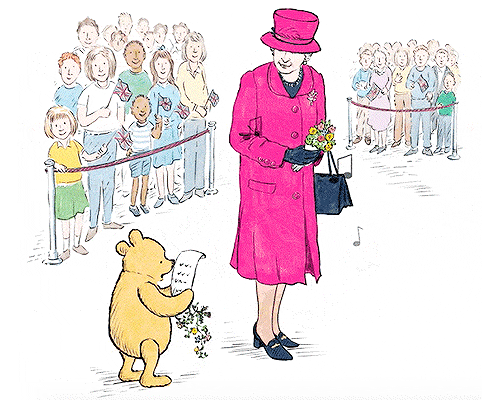
Brexit
8 out of the 24 bills in the speech related to plans for UK policy after leaving the EU. We’ve broken down the main aspects of each bill below:
- Repeal Bill – turns EU law into UK law so UK Parliament can make changes
- Customs Bill – UK takes control of import and exports
- Trade Bill – lets the UK make trade deals with other countries
- Immigration Bill – allows UK government to end free movement of EU nationals into UK
- Fisheries Bill – gives UK control of its waters and fishing quotas
- Agriculture Bill – a system will be put in place to protect UK famers
- Nuclear Safeguards Bill – creates a UK nuclear safeguards regime to replace the EU one
- International Sanctions Bill – gives government final say on imposing non-UN sanctions to the UK and ensures sanctions can still be challenged
Economy
This was a stripped back speech, with very little change in economic policy. Only 5 bills related to the economy:
- Automated and Electric Vehicles Bill – service stations will, at some point, need to install charge points for electric vehicles
- Space Industry Bill – new commercial spaceflight to be licensed, including rockets
- HS2 Phase 2A Bill – the high speed railway will extend to Crewe sooner than planned
- Smart Meter Bill – every household will be offered smart meters by 2020
- National Insurance Contributions Bill – allows for the changes announced in 2016 budget
Other
There were 11 miscellaneous policies. More notable bills include the Courts Bill, which will remove the right of partners accused of domestic violence to cross-examine their alleged victim in court.
On a similar vein, the Draft Domestic Violence and Abuse Bill will introduce new measures to protect victims of domestic violence.
For younger voters, the Data Protection Bill is very interesting - it will require social media accounts to delete information held about you at the age of 18.
What does this all mean?
Legally, not very much. Not until next week anyway, when the MPs in the House of Commons will have the chance to vote for or against each bill individually. With a majority not yet secured, there’s a chance not all of these proposed bills will pass. Even then, these are just a snapshot of proposed government policy over the next 2 years.
What the Queen’s Speech does tell us is that the Tories are not having a very happy time at the moment. A large chunk of their manifesto has gone missing:
- New grammar schools
- The ‘dementia tax’
- Scrapping triple lock pensions
- Replacing free school lunches with free breakfasts
- Energy price caps
- Voting to remove ban on fox hunting
- Means testing winter fuel payments
The suggestion is that the Tories did not think they would be able to pass these policies through the Commons - the more liberal parties were all very vocal in their opposition to these proposals during election campaigning, and even the DUP do not agree with scrapping triple lock pensions.
Through the Queen’s Speech, we’ve been given a little glimpse of the state of the Conservative Party: a monstrous papier-mâché parody of an unpopular manifesto.
They’re the focus of every political blogger today: just what is going on with the DUP.
Just last week, they were an unknown fringe party this side of the Irish Sea.
On Thursday, they looked like the most important party in Britain, that final puzzle piece that would give the Tories their majority in Parliament - if some sort of deal could be arranged.
Now? That deal looks very, very shaky.
The Queen’s Speech, after a 2 day postponement, is tomorrow. An official deal with the DUP has not yet been agreed. Without some sort of official deal in place, it will be a lot more difficult for the Tories to pass their laws through the House of Commons.
The DUP say the UK are taking them for granted. At this stage, it looks like one of the major stumbling blocks is the DUP’s demand for the removal of air passenger duty in NI (the tax you pay to fly from UK airports, payable on booking). The Tories are hesitant to consent to this in case it leads to similar calls from Scotland, Wales and England.
It looks like the public will have to wait until tomorrow to see if the DUP deal can be made in time.
Whatever’s going on, it’s certainly nothing strongnorstable.
Sources:
Yes, it’s the first day of the long anticipated Brexit negotiations and the first in our series of Brexit related posts. First days are always tricky. Both parties sizing the other up, looking for an angle to put their team ahead - so how did everyone get on?
Representing the UK is David Davis, veteran MP for the Conservative party and May’s Secretary of State for Exiting the European Union. His approach? Well, no one reallyknows. It looks like we’re in for a ‘hard’ Brexit, with Davis opening the discussion with talk of leaving the customs union and the single market - to the universal agreement of the EU team. When it comes to borders, movement and human rights? No word yet.
What we do know is that UK’ first aim is to build the Brexit schedule on theirterms, not the EU’s. The UK went into today’s talks hoping to get permission to discuss trade agreements with various EU countries at the same time as discussing the possible ‘divorce bill’ they might or might not owe. This is the big power play of the day - whoever gets their way gets the upper hand going forward.
And the winner is?
On the first day of negotiations, the winner was the EU by a landslide. Chief negotiator for the EU, Michael Barnier, stated that the UK, as the leaving party, were not in a position to determine the timetable.
Compounding the strategic loss, the Conservative government has also suggested it will U-turn on its stance not to guarantee the right to remain of EU citizens currently in the UK. Theresa May herself is expected to fly out to Brussels over the next few days to unveil the reversal.
The rights of EU citizens is something many opponents to the Tories promised in party manifestos leading into GE2017, particularly Jeremy Corbyn’s Labour. Maybe we’re seeing the first signs of the impact of May’s hung parliament.
And if things didn’t look like they could get any worse for Davis and the UK, the issue of the Irish border just became a whole lot more complicated. Negotiations are now expected to take a lot longer than the UK team predicted. How this news will affect the DUP’s deal with the Conservatives is yet to be seen.
Join us tomorrow for another edition of The Brex-Files
Sources:
I always rode the bus past this politically conflicted, ever evolving street art in SE London
Original art: “Resting Witch Face” under portrait of current UK Prime Minister Theresa May frowning
Graffiti over art: “I am a confused Tory not Satan”
2 months later: the “n” and “t” in “not” were erased, leaving a conveniently placed “o,” thus making it, “I am a confused Tory of Satan”
Tory is slightly derogatory British slang for a candidate/supporter of the Conservative Party
Post link
Larry the cat will live on at 10 Downing Street
Keep calm and carry on, everyone.
Britain’s new leader Theresa May will move into her official residence at 10 Downing Street Wednesday as Prime Minister David Cameron moves out, but one member of his team is staying put: Larry the cat.
The four-legged resident becomes is one of the few British political figures to have survived the turmoil of last month’s Brexit referendum.
Post link



![Tory Leadership Possibilities: Tag Yourself [x] Tory Leadership Possibilities: Tag Yourself [x]](https://64.media.tumblr.com/24ef22a37caabc3d86d88e8a72258428/tumblr_orge9dJcf21w8r8xio1_500.png)
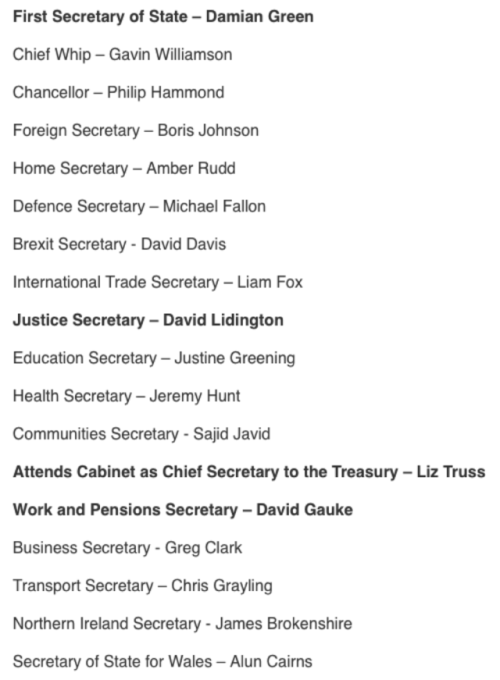
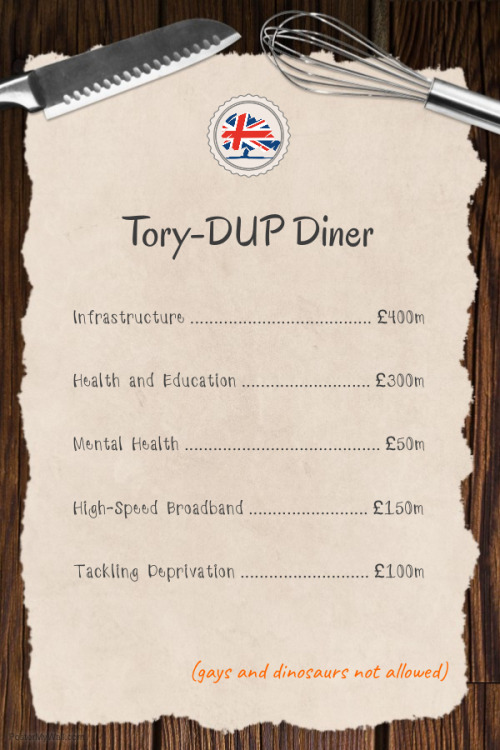
![The Queen’s Speech [x] The Queen’s Speech [x]](https://64.media.tumblr.com/bf99fdf8ff12a413729f74701cd33750/tumblr_orw5m0yNYm1w8r8xio1_500.png)
![The Queen’s Speech [x] The Queen’s Speech [x]](https://64.media.tumblr.com/99f0057ff0e3b03af6097d8dfebe7418/tumblr_orw5m0yNYm1w8r8xio2_500.png)
![The Queen’s Speech [x] The Queen’s Speech [x]](https://64.media.tumblr.com/c30946a9c2f03bb07303afd01bbb3d6d/tumblr_orw5m0yNYm1w8r8xio3_500.png)
![The Queen’s Speech [x] The Queen’s Speech [x]](https://64.media.tumblr.com/8642b03f6643225ab8d0e343032d0f6d/tumblr_orw5m0yNYm1w8r8xio4_500.png)

